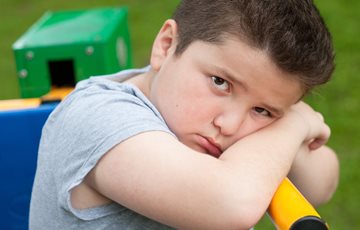Childhood obesity is a growing public health issue with wide-ranging implications for children’s physical and mental well-being. Recent findings reveal that children who are overweight can experience significant emotional challenges as early as kindergarten, often feeling more lonely, anxious, and socially isolated than their normal-weight peers. These struggles aren’t just short-term—both boys and girls with signs of depression and anxiety in early childhood may see their symptoms worsen over time, particularly if these issues go unaddressed.
Why Is This Happening?
Several factors contribute to the unique challenges overweight children face. Social stigma and bullying are unfortunately common, leading to feelings of exclusion and low self-worth. Additionally, children with obesity may struggle with body image issues, often compounded by societal pressures and media portrayals of “ideal” body types. Over time, these stressors can significantly impact mental health, self-esteem, and social relationships.
Long-Term Consequences
Studies indicate that untreated mental health challenges in childhood can lead to persistent issues, including an increased risk for depression, anxiety disorders, and even academic struggles. Research from the CDC highlights the correlation between childhood obesity and lower levels of physical activity and self-esteem, creating a cycle that can be difficult to break as children grow older. The emotional impact of childhood obesity is profound and can follow children into adolescence and adulthood, underscoring the need for holistic approaches that address both physical and emotional health.
Supporting Children’s Physical and Mental Health
While it’s essential to promote healthy lifestyles through balanced nutrition and physical activity, addressing mental health is equally important. Here are some strategies to support the holistic well-being of children at risk of obesity:
- Create Supportive Environments: Schools and communities should foster inclusive environments that prevent bullying and encourage positive body image. Teachers and school staff can play a role by creating an atmosphere where all students feel safe and valued.
- Encourage Open Conversations: Parents and caregivers can initiate open discussions about emotions and self-worth, helping children feel comfortable discussing their challenges. Acknowledging feelings and providing emotional support can improve resilience.
- Promote Physical Activities as Enjoyable: Rather than focusing on weight loss, make physical activities a fun part of daily life, encouraging children to try sports, dance, or other activities that they enjoy. Enjoyable movement is more sustainable and supports both physical and mental health.
- Access to Mental Health Resources: Schools and healthcare providers should work together to ensure children have access to mental health resources, including counseling and support groups tailored to young children.
- Educate on Nutrition in a Positive Way: Educating children on healthy food choices without attaching shame or guilt can help them build a positive relationship with food.
Looking Ahead
Addressing childhood obesity requires a compassionate, multifaceted approach that includes promoting healthy habits while prioritizing mental well-being. Together, we can help children grow up feeling accepted, capable, and empowered to make healthy choices for themselves. Early intervention in both physical and mental health aspects can create a positive foundation, ensuring a brighter future for the next generation.
By raising awareness and taking action, we can combat the negative effects of childhood obesity on mental health and help every child feel valued and supported.


